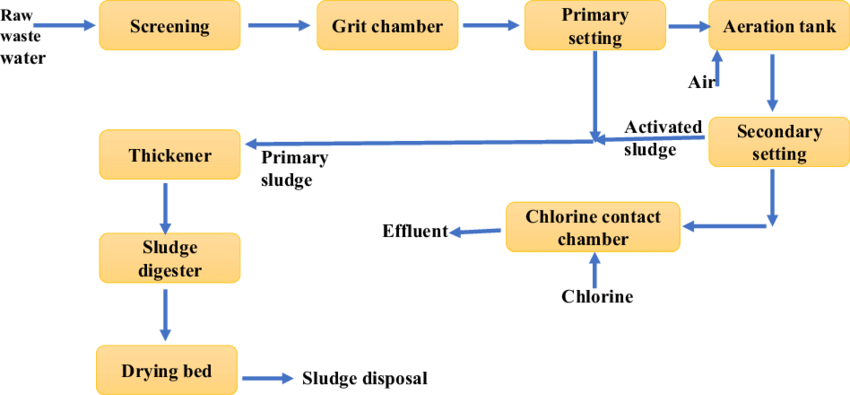The smart Trick of Reclaim Waste That Nobody is Talking About
The smart Trick of Reclaim Waste That Nobody is Talking About
Blog Article
The 7-Minute Rule for Reclaim Waste
Table of ContentsAbout Reclaim WasteReclaim Waste for BeginnersThings about Reclaim WasteThe Definitive Guide to Reclaim WasteThe Ultimate Guide To Reclaim Waste
Check out the types, events, and forms of fluid waste. Domestic sewer waste refers to the waste and items from a domestic septic system. This kind of waste is produced by human beings in homes, schools, and various other structures. This only includes septic systems that have a drain field. The appropriate management and disposal of domestic sewage waste need fluid waste to be moved to a sewer therapy plant where the appropriate methods and devices are applied to detoxify and dispose of waste.
Industrial waste typically includes prospective threats, such as combustible materials or a mix of fluid and solid waste items, and calls for an advanced and in-depth disposal process. The disposal of business waste generally entails the filtration of waste before transport to make certain safe and correct disposal. Industrial waste is developed from byproducts and runoff of commercial procedures and manufacturing.
This sort of waste can not make use of the same sewage administration transport or processes as septic or business fluids. The commercial waste monitoring procedure requires the assessment and screening of fluid waste prior to it undertakes the disposal procedure (industrial wastewater treatment). Runoff waste is the liquid waste that comes from runoff and excess stormwater in highly inhabited areas or cities
Overflow waste can trigger contamination and flooding otherwise managed correctly. Learn extra concerning sewage system cleansing and waste monitoring. Making certain correct waste monitoring can protect against calamities and lower ecological injury. Both individuals in household setups and professionals in commercial or production markets can take advantage of understanding the procedures and laws of fluid waste monitoring.
How Reclaim Waste can Save You Time, Stress, and Money.
Get in touch with PROS Solutions today to discover our waste administration and disposal services and the proper ways to care for the fluid waste you produce.
(https://issuu.com/reclaimwaste1)This supposed 'wastewater' is not only a vital source but, after therapy, will be released to our land, rivers or the ocean. Used water from commodes, showers, baths, kitchen area sinks, laundries and commercial processes is recognized as wastewater.

water used to cool down machinery or clean plant and tools). Stormwater, a type of wastewater, is runoff that streams from agricultural and city areas such as roofing systems, parks, yards, roads, courses and gutters right into stormwater drains pipes, after rain. Stormwater moves without treatment straight to local creeks or rivers, at some point reaching the ocean.
The 20-Second Trick For Reclaim Waste
In Queensland, the majority of wastewater is treated at sewer therapy plants. Wastewater is transported from residential or industrial websites through a system of drains and pump stations, called sewage reticulation, to a sewage therapy plant. Neighborhood governments build, preserve and operate most sewage therapy plants. Operators are licensed under the Environmental Defense Act 1994 to discharge treated wastewater at an appropriate environmental standard right into waterways.
The Department of Natural Resources recommends city governments regarding managing, operating and maintaining sewage systems and therapy plants. In unsewered locations, regional governments may require householders to set up private or family sewer therapy systems to treat residential wastewater from bathrooms, kitchen areas, shower rooms and laundries. The Department of Natural Resources authorizes using home systems when they are shown to be efficient.
A lot of stormwater gets no treatment. In some brand-new communities, therapy of some stormwater to remove clutter, sand and crushed rock has begun making use of gross pollutant traps. Wastewater therapy occurs in 4 phases: Removes strong matter. Bigger solids, such as plastics and various other objects mistakenly discharged to sewers, are gotten rid of when wastewater is travelled through screens.
Wastewater then moves into huge storage tanks where solids resolve and are gotten rid of as sludge. Grease and scum are skimmed from the surface area. Utilizes tiny living microorganisms understands as micro-organisms to break down and get rid of staying liquified wastes and fine bits. Micro-organisms and wastes are included in the sludge. Removes nitrogen and phosphorus nutrients that might create algal blooms in our waterways and intimidate water life.
Some Ideas on Reclaim Waste You Should Know
Nutrient elimination is not readily available at all sewer therapy plants due to the fact that it calls for costly specialist devices. Clear fluid effluent created after treatment may still include disease-causing micro-organisms - liquid waste disposal.

This normally indicates wastewater needs to be treated or contaminants gotten rid important site of prior to it can be released to waterways. The majority of wastewater flows right into the sewerage system. Under the Act, city governments carry out approvals and licences for ecologically relevant tasks (Ages) including wastewater launches that may have a regional impact. The division administers authorizations and permits to ERAs entailing wastewater launches that might have a local or statewide effect.
Reclaim Waste - An Overview
Otherwise, examples are considered lab evaluation. Often several examinations are needed to establish the degrees of each of the different pollutants such as oils, heavy steels and chemicals in water. Monitoring offers factual details about water high quality and can validate that permit problems are being satisfied. The details gotten through surveillance gives the basis for making water quality decisions.
Report this page